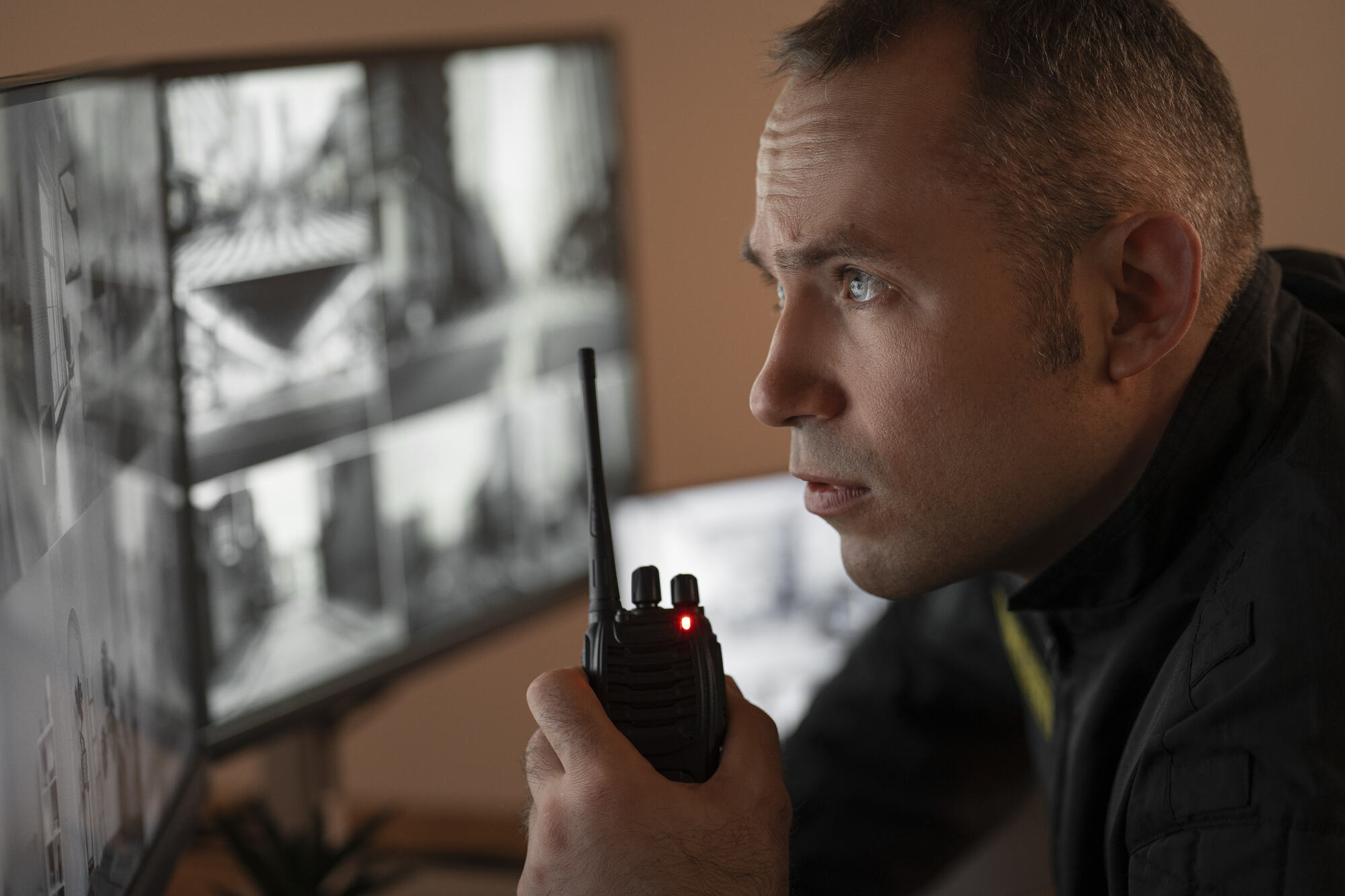In an age where technology continues to revolutionize every industry, security is no exception. The traditional image of a security guard patrolling a property or monitoring a front gate is evolving. Introducing the remote security guard is reshaping how organizations and homeowners alike think about protecting their premises. This modern solution leverages advanced technology to provide real-time monitoring, quicker response times, and cost-effective security measures. But what exactly is a remote security guard, and why are they becoming a popular choice?
What is a Remote Security Guard?
A remote security guard is a professional who monitors security systems from a centralized location. Instead of being physically present on the site, these guards use technology like CCTV cameras, motion sensors, and other surveillance tools to observe and safeguard properties remotely. This is made possible by integrating high-tech monitoring systems with human oversight, ensuring that no suspicious activity goes unnoticed.
With the aid of modern tools such as AI, motion detection, and infrared technology, remote security guards can monitor large areas more efficiently than on-site guards ever could. When an issue arises, these professionals can quickly respond by contacting local law enforcement, issuing commands over loudspeakers, or triggering alarms.
How Does Remote Security Monitoring Work?
The process of remote security monitoring involves several key components working together:
- Surveillance Systems: High-resolution cameras are installed across the property, covering all critical areas. These cameras feed live footage to the remote monitoring center where trained personnel observe all activity.
- Motion Detectors and Sensors: Advanced motion sensors are strategically placed to detect movement. If any suspicious motion is detected, the remote security guard is alerted instantly.
- Artificial Intelligence (AI) Integration: AI enhances the ability of a remote security guard by analyzing patterns and recognizing unusual behaviors. This system can distinguish between a harmless animal crossing the property and a potential intruder, reducing the chances of false alarms.
- Two-Way Communication: In many setups, remote guards have the ability to communicate with intruders or staff directly through speaker systems. They can issue warnings or instructions to people on-site, further deterring criminal activity.
- Immediate Action: Upon detecting a threat, remote security guards can call the police, alert the property owner, or activate on-site alarms. This prompt action can prevent criminal activities before they escalate.
Benefits of Remote Security Guards
The shift from traditional on-site guards to remote monitoring comes with a host of benefits for businesses, property owners, and homeowners alike.
1. Cost-Effective Security
Hiring physical security personnel can be expensive, especially when round-the-clock coverage is required. Remote security services offer a more affordable alternative without compromising on the level of protection. By using technology, fewer human resources are needed, reducing labor costs while maintaining, or even enhancing, security effectiveness.
2. 24/7 Coverage
Unlike traditional security guards who work in shifts, remote security guards can monitor a property 24/7 without breaks. This continuous monitoring ensures that no area of the property is left vulnerable, even during late-night hours or holidays. With the help of technology, remote guards can handle multiple sites simultaneously, improving efficiency.
3. Faster Response Times
One of the significant advantages of remote monitoring is the quick response to potential threats. In the event of an emergency, remote security guards can alert authorities or take preventive measures in real-time. In contrast, an on-site guard may have to patrol a large area, potentially missing critical events. With a full view of the property at all times, remote guards can act immediately.
4. Advanced Surveillance Technology
Remote security guards rely on cutting-edge surveillance equipment, including high-definition cameras, thermal imaging, and AI-powered analytics. This technology provides a comprehensive view of the property, allowing guards to identify unusual activity more efficiently than ever. In contrast, traditional security guards may face physical limitations or distractions while on duty, which could compromise their ability to notice a threat.
5. Increased Safety for Personnel
For high-risk environments such as construction sites, warehouses, or industrial plants, on-site guards face the possibility of encountering dangerous situations. Remote security eliminates this risk by keeping guards off-site while still maintaining a strong security presence. In cases where an intruder is detected, a remote security guard can alert the police without putting themselves in harm’s way.
6. Detailed Reporting and Documentation
Remote security monitoring systems often come equipped with automated reporting tools. This means that any unusual activity is logged and documented in real-time. These detailed reports can be invaluable for legal proceedings, insurance claims, or internal investigations. Traditional guards may rely on handwritten logs, which are prone to human error or can be incomplete.
Applications of Remote Security Guards
Remote security services are highly versatile and can be applied across various industries and sectors. Some of the most common applications include:
- Residential Buildings: Homeowners and apartment complexes can benefit from remote monitoring, keeping residents safe without the need for on-site guards.
- Commercial Properties: Businesses, retail stores, and office buildings can reduce theft, vandalism, and unauthorized access with the help of remote security.
- Construction Sites: Thieves often target expensive equipment and valuable materials on construction sites. Remote security continuously monitors these areas, even during off-hours.
- Healthcare Facilities: Hospitals and medical centers often have sensitive areas that require strict access control. Remote security helps monitor entrances, exits, and restricted zones efficiently.
Conclusion
The role of the remote security guard is a prime example of how technology is reshaping traditional services. By blending human oversight with advanced surveillance tools, remote security solutions provide businesses and individuals with a more reliable, cost-effective, and safer option. As technology evolves, the demand for remote security guards will grow, making them an essential component of modern security systems.
Whether you’re managing a residential property, overseeing a construction site, or protecting a business, the future of security might just be in the hands of remote guards who can keep watch from anywhere, at any time.


